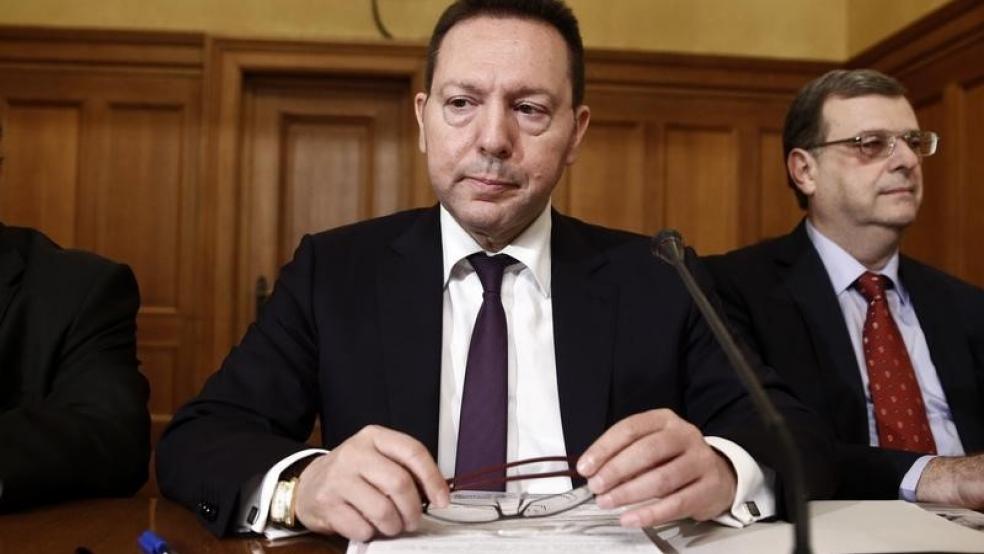ATHENS (Reuters) - Greece's central bank governor warned on Wednesday that further delay in completing a first review of the country's bailout reforms could imperil a projected economic recovery in the second half of this year.
Bank of Greece Chief Yannis Stournaras has repeatedly underlined the need to implement reforms the leftist-led government agreed with official lenders under a third bailout clinched last July, saying any backtracking entailed risks.Reforming Greece's ailing pension system is a prerequisite for the conclusion of the review, which is expected to open the way for debt relief talks, but the government is facing protests from farmers and other groups of workers. "Every hour that we fail to complete the review weighs on confidence," Stournaras told the Greek parliament's economic affairs committee. "It (completion) should have been done before the end of last year.""Social and political consensus is very important, Cyprus is the closest example. It exited the bailout faster than us," he added, stressing the need to persuade Greeks of the need for further sacrifice to get the economy back on an even keel.Eurogroup head Djisselbloem said last month the conclusion of the first review of Greek reforms could take months rather than weeks. There are also concerns in Europe that the review might be derailed by domestic politics. Prime Minister Alexis Tsipras has a parliamentary majority of just three.A positive assessment of Greece's reforms by its official lenders would boost confidence, improve the banking system's liquidity through the return of deposits and pave the way for a further loosening of capital controls.BIG DIVIDENDStournaras told deputies the Bank of GreeceGreek central bank chief says delay in bailout review threatens recovery

© Alkis Konstantinidis / Reuter



